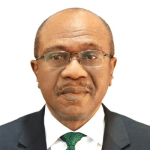
The organized labor’s criticism of the Federal Government’s move to release a N180 billion palliative package to states, aimed at cushioning the impact of the fuel subsidy removal, has intensified. The Nigeria Labour Congress (NLC) and the Trade Union Congress (TUC) have expressed concerns that the funds might not reach the intended recipients, and that politicians rather than the impoverished citizens would reap the benefits of the N5 billion allocation to each state government.
The Federal Government’s announcement, which unfolded during the 135th National Economic Council meeting presided over by Vice President Kashim Shettima in Abuja, has sparked debates and nationwide protests by organized labor. The labor unions insisted that the government should prioritize repairing refineries before implementing the subsidy withdrawal.
Despite these concerns, Borno State Governor Babagana Zulum, who announced the release of the palliative, stated that the N5 billion would allow each state government to procure 100,000 bags of rice, 40,000 bags of maize, and fertilizers. He noted the urgency in addressing the rising food prices across the nation.
Vice President Shettima elucidated the distribution plan, stating, “52 percent of this money is given to states as grants, while 48 percent of the N5 billion is to be paid back on an installment basis within a period of 20 months to the CBN by the states and the local government areas in Nigeria.” He acknowledged the efforts of the Federal Government, President Tinubu, and the Central Bank of Nigeria (CBN) in implementing the plan.
Furthermore, the Vice President outlined the allocation of the N500 billion fund to various sectors, including Micro, Small, and Medium Enterprises (MSMEs), the industrial sector, cash transfers, agriculture, and gas expansion for buses. The Federal Government also plans to establish more gas stations, procure gas-powered buses, CNG buses, and electric buses to counter the escalating fuel prices.
A special committee within the National Economic Council was established to engage with the leadership of labor unions, aiming to foster dialogue on the fuel subsidy removal and related issues. The committee comprises governors, the Governor of the Central Bank of Nigeria, and other government officials.
In response, labor leaders including NLC President Joe Ajaero and TUC Deputy National President Tommy Etim expressed skepticism about the ability of state governors to ensure the effective implementation of the palliative funds. They highlighted past instances where relief funds were mismanaged or withheld from citizens.
In the face of mounting criticisms and protests, President Tinubu, represented by the Secretary to the Government of the Federation, George Akume, acknowledged the current hardship caused by the subsidy removal and urged Nigerians to bear the temporary discomfort for future benefits. Akume assured citizens that palliatives would continue to be rolled out to mitigate the impact of the policy.
As debates continue and organized labor remains vigilant about the fund’s distribution, Nigerians are grappling with the complex challenge of balancing economic reform with immediate relief for those most affected.





Comments are closed.